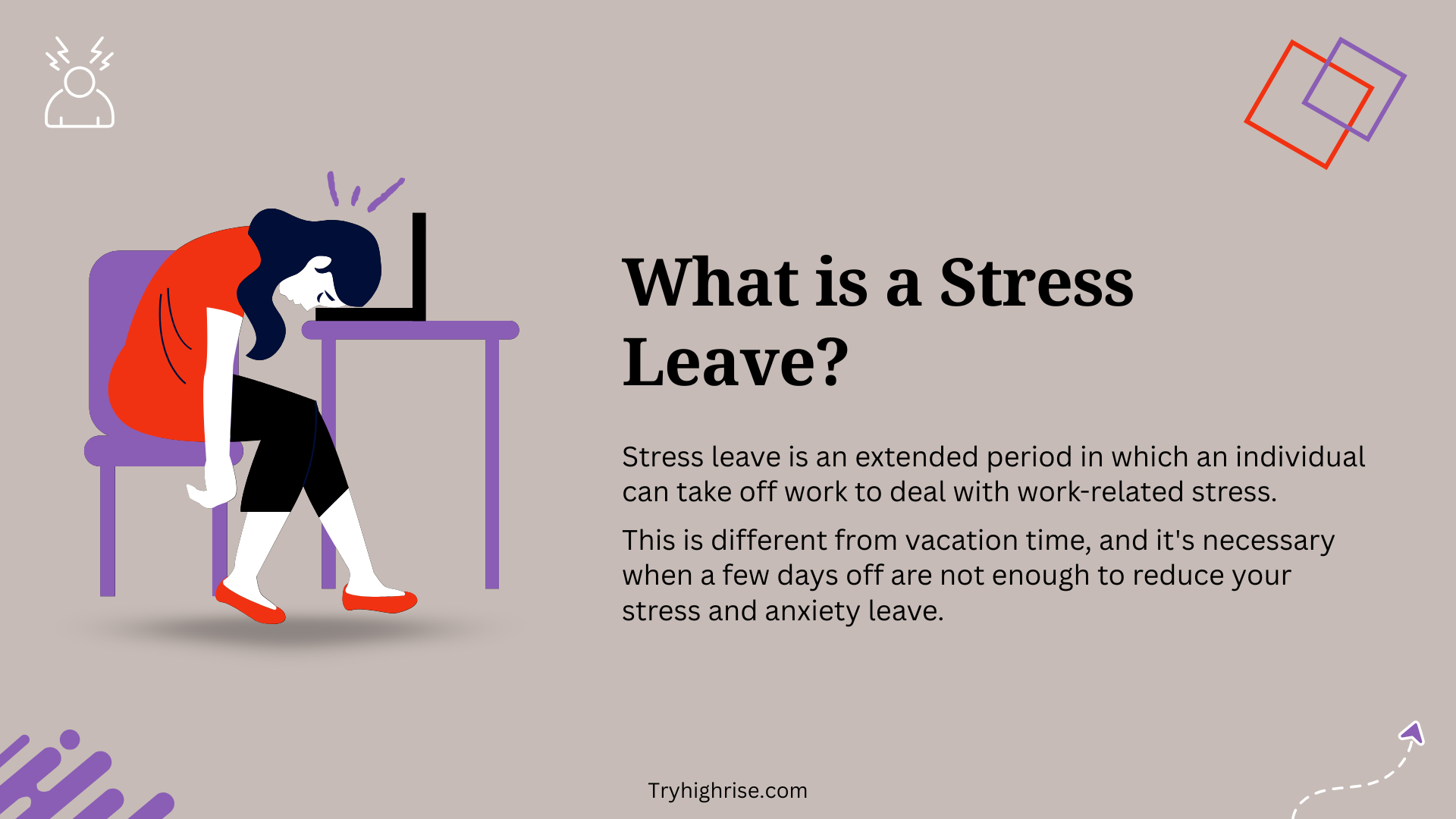<div id="seven">
What Are the Signs That You Need a Stress Leave From Work?
Employees must be aware of the symptoms, as untreated stress can lead to mental and physical health problems. Here are some signs they should look out for:
1. Emotional Symptoms: stress can affect an employee's emotional state. It can lead to symptoms like mood swings, anxiety, and irritability. Employees experiencing stress or other symptoms may be more emotional than usual and have difficulty controlling them.
2. Interpersonal Symptoms: Stress can also affect employees' relationships with their managers and colleagues. Employees experiencing stress may become defensive or aggressive and may experience conflicts with their colleagues or superiors.
3. Physical symptoms: Stress can cause physical symptoms such as headaches, muscle tension, fatigue, sleep disturbances, and digestive problems. Employees experiencing stress may notice that they are frequently getting sick, experiencing chronic pain, or having trouble sleeping.
3. Behavioral Symptoms: Stress and mental disorders can also cause changes in behavior. Employees experiencing stress may become withdrawn, have trouble completing tasks, or turn to unhealthy coping mechanisms such as substance abuse or overeating.
4. Cognitive Symptoms: Stress can affect someone's decision-making ability. Employees experiencing stress may notice that they are having trouble concentrating, remembering details, or making decisions.
As an employee, you must look for these symptoms and take decisive action to address them before they become serious. Implementing stress management strategies or seeking help from a mental health professional can help you manage stress and prevent more severe health conditions from developing.
<div id="eight">
What to Do During a Stress Leave From Work
Here are some things you can do during this period:
Get professional help: Involve qualified healthcare providers like psychiatrists and psychologists to discuss your mental health and develop a treatment plan that can sort you out.
Involving such professionals will help improve your mental health and manage stress.
Part of professional help can involve seeking the advice of a professional coach to help you improve your self-awareness.
Exercise self-care: You must care for yourself during stress leave. Have enough rest, engage in physical activities, and eat a balanced diet. Self-care helps you recharge and relax.
Address your source of stress: During your stress leave, try to identify the source of stress in your life and develop ways to address them. This may include adjusting your schedule and changing your work environment.
Find support networks: Surrounding yourself with people who care about your well-being can provide you with the emotional support you need during this period. They may include support groups, friends, or family.
Search for new interests: during your time off, you can explore new interests that may bring you joy, which can help you improve your mental health condition.
Follow up on your progress: keeping track of your progress can help you identify areas needing additional attention.
<div id="nine">
Tips to Get Back To Work Stress-Free?
Here are some tips:
1. Consult your employer: Before returning to work, discuss your concerns and needs with your employer. This will ensure that you return to work stress-free.
2. Have boundaries: prioritize your well-being when you get back to work and set boundaries. This may include saying no to requests or tasks you are uncomfortable doing and taking breaks when needed.
3. Ease back to work: It's important to ease back into position slowly rather than trying to jump back in at total capacity. This may involve starting with shorter workdays, taking on lighter tasks, or working from home for some time.
4. Stay positive: having a positive outlook will help you find happiness and fulfillment in your job. This can help you be engaged and motivated even in stressful situations.
5. Apply stress management techniques: Use meditation and deep breathing to help you stay calm when you are overwhelmed.
It's challenging to return to work after a stressful leave, but with the right strategies and support, it's possible to return to work with renewed focus and energy.




















